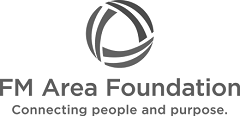Get Involved
Presence
Your gift of time develops value, meaning, leadership, and social capital for our youth. It enhances a deeper understanding between you and the youth of our community. We invite you to share purposeful time completing service projects with our youth. Teamwork always wins!
Employment
Our goal is to provide personalized learning resources, so every student has access to education, opportunities, and people to have productive futures.
ND Charitable Tax Benefit
Legacy Children’s Foundation is a non-profit 501c3 charity. We depend upon the support of youth investors to fulfill our mission with integrity and excellence. At LCF, every teenager is surrounded by personalized resources to advance their education, service to the community, and leadership skills to become productive citizens of our nation.
If you are a North Dakota taxpayer, you may be able to claim a credit of 40% on a minimum donation of $5,000 to a qualified endowment through the North Dakota Charitable Income Tax Credit. This credit is on top of the savings you receive on your federal tax return by itemizing your qualifying charitable donations.
By taking advantage of both the state tax credit and federal tax deduction, you can significantly lower the net cost of your contribution and triple its impact.
Donor Documents
The financial records of L.C.F. are audited annually by an independent third party. Interested persons are welcome to request a copy of the audit or other financial documents by contacting the Executive Director at legacychildrensfoundation@gmail.com
The Legacy Children's Foundation believes in accountability, conservative investment of donor funds, and a commitment to communicating how donor gifts are invested in advancing the mission of L.C.F. and the youth we serve. Donor gifts are confidential and treated with care and appreciation. The Donor Bill of Rights provides additional information to donors about their rights and the responsibilities of a charitable organization such as the Legacy Children's Foundation. Please do not hesitate to contact us with questions regarding your gift or a potential gift to support our mission and youth. We are grateful for your consideration.
Donor Bill of Rights
Philanthropy is based on voluntary action for the common good. A tradition of giving and sharing is primary to the quality of life. To assure that philanthropy merits the respect and trust of the general public and that donors and prospective donors can have full confidence in the nonprofit organizations and causes they are asked to support, we declare that all donors have these rights:
- To be informed of the organization's mission, how it intends to use donated resources, and its capacity to use donations effectively for their intended purposes.
- To be informed of the identity of those serving on the organization's governing board and to expect the board to exercise prudent judgment in its stewardship responsibilities.
- To have access to the organization's most recent financial statements.
- To be assured, their gifts will be used for the purposes for which they were given.
- To receive appropriate acknowledgment and recognition.
- To be assured that information about their donations is handled with respect and with confidentiality to the extent provided by law.
- To expect that all relationships with individuals representing organizations of interest to the donor will be professional in nature.
- To be informed whether those seeking donations are volunteers, employees of the organization, or hired solicitors.
- To have the opportunity for their names to be deleted from mailing lists that an organization may intend to share.
- Feel free to ask questions when donating and receive prompt, truthful, and forthright answers.
The Donor Bill of Rights was created by the Association of Fundraising Professionals (AFP), the Association for Healthcare Philanthropy (A.H.P.), the Council for Advancement and Support of Education (CASE), and the Giving Institute: Leading Consultants to Nonprofits.
40% Tax Credit For Individuals
Gifts made by an individual to a qualified endowment fund are eligible for the 40% tax credit if the aggregate of that year’s gifts is equal to $5,000 or more.
The maximum credit amount that may be claimed is $10,000 for an individual or $20,000 for married individuals filing jointly.
Example: Mrs. Smith, a North Dakota resident, donates $20,000 in cash to an endowment fund. She receives an $8,000 tax credit (40%) on her North Dakota return. If she is in the 28% Federal tax bracket, her Federal tax savings are $3,360 (28% of $12,000). The “cost” of her $20,000 gift is offset by $11,360 in tax savings.
40% Tax Credit For Businesses
Gifts made by a business entity to a qualified endowment fund are also eligible for a 40% tax credit. They have an annual limitation of $10,000.
In some cases, the entity will “pass through” some or all of the credit to the business owners or the beneficiaries of the trust or estate.
Example: Partnership XYZ has three equal partners. They would each receive a $3,000 tax credit available for use on their North Dakota individual income tax returns if the partnership qualifies for a $9,000 credit.
This information is provided for educational purposes only. Please consult your attorney, accountant, or financial advisor for advice.
Hear From Our Current Students
With Thanks To:

















